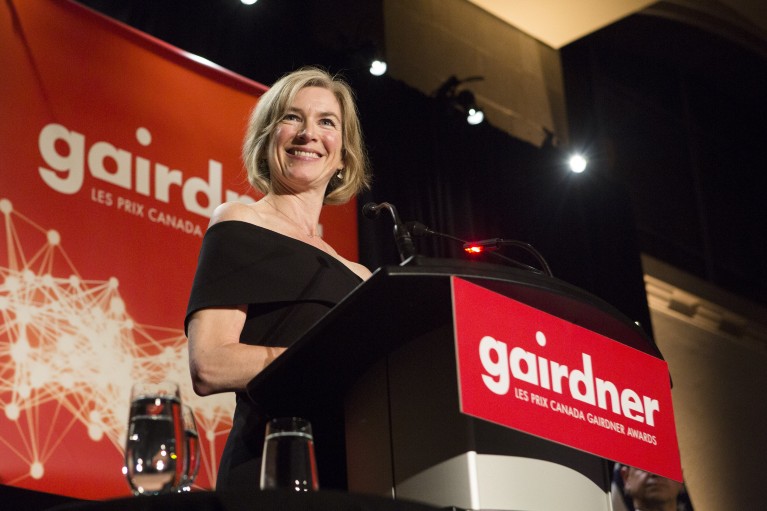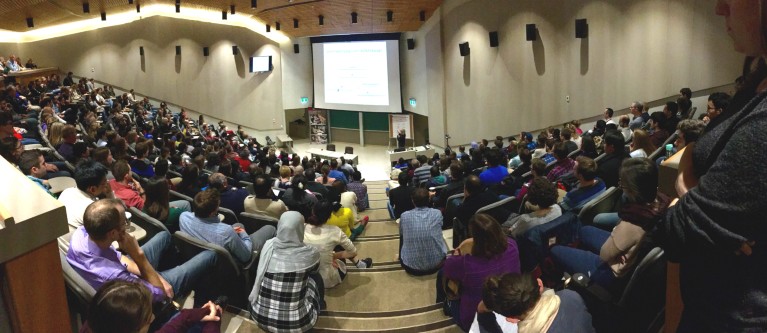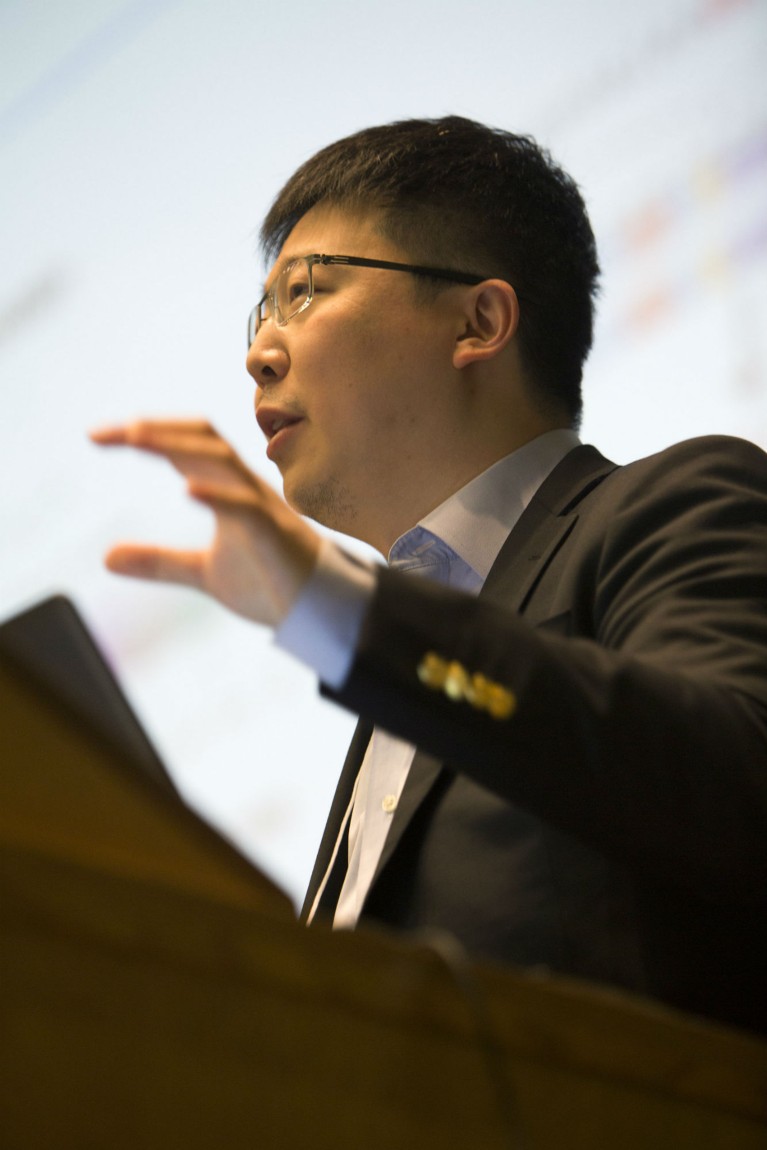If history is any guide, there’s a good chance that at least one recipient of this year’s Canada Gairdner Awards will go on to win a Nobel Prize. In the 60 years since the nonprofit Gairdner Foundation started handing out Canada’s preeminent awards for scientific achievement, nearly one-quarter of the winners have gone on to become Nobelists.

Professor Jennifer Doudna at the Gairdner Awards Gala Credit: Della Rollins
Among the seven Gairdner awardees this year are trailblazers in the fields of cell biology, cancer treatment, autoimmunity, DNA replication and mental health — all deserving of the world’s top science prize.
“But it’s not really about looking for the next Nobel winners,” says Janet Rossant, president and scientific director of the Gairdner Foundation. The foundation has a “broad mandate”, she notes, which includes promoting scientific literacy among the Canadian population, and encouraging research-based exchanges with other nations.
“We celebrate excellence,” say Rossant, herself a past winner, “but we want to use the awards to really celebrate the importance of science and inspire the next generation.”

National Outreach Program lecture in Ottawa Credit: University of Ottawa
In October 2019, for example, alongside the annual awards gala, the foundation will host a public symposium on global mental health issues featuring Vikram Patel, a psychiatrist from the Harvard T.H. Chan School of Public Health in Boston, Massachusetts. Patel won this year’s John Dirks Canada Gairdner Global Health Award in recognition of his pioneering research into the cultural determinants and treatment of mental illness in impoverished regions of India. The October symposium will focus on how interventions Patel developed could be used in resource-poor parts of the Canadian north and elsewhere in North America.
As part of “Gairdner Week”, many of the past and current award recipients will also go on a kind of scientific roadshow, travelling across Canada and giving lectures to university and high school students. Additional outreach programmes and public lectures happen throughout the year in cities coast to coast.

MIT's Feng Zhang at a lecture during 'Gairdner Week' Credit: Della Rollins
“We see Gairdner awardees as ambassadors for science,” says Rossant, “and we have a loyal family of laureates that wecan call on.”
Joining the family are the 2019 international award recipients, including Susan Band Horwitz, the molecular pharmacologist from the Albert Einstein College of Medicine in the Bronx, New York, whose work 50 years ago helped usher in a new class of anti-cancer therapeutics. Another is the Wightman Award winner Connie Eaves, recognized for her paradigm shifting research into stem cells at the British Columbia Cancer Agency in Vancouver as well as her commitment to training young scientists.
As much as Rossant is excited to fete this year’s awardees, she says the foundation is already planning ahead to 2020: “We are always looking for excellent new nominations, especially from groups underrepresented in the awards environment.”


